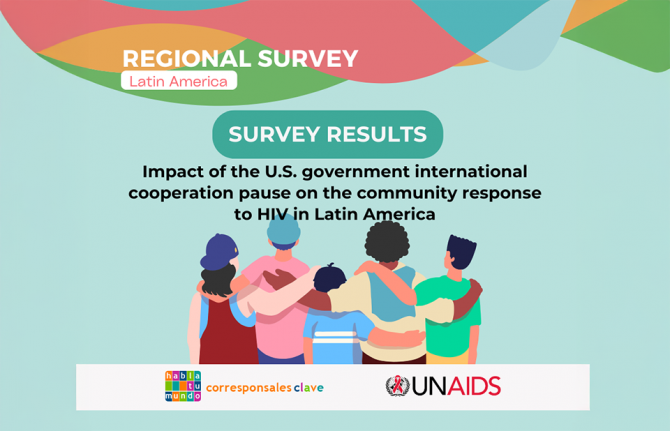

Feature Story
Colombian Afro-descendant women are shaping the HIV response in their own terms
06 August 2025
06 August 2025 06 August 2025This story first appeared in the UNAIDS Global AIDS Update 2025 report.
In Colombia, Afro-descendant women are taking the HIV response into their own hands. Faced with racism, inequality and violence—factors that make them more vulnerable to HIV—they are organizing themselves, speaking out, and demanding better access to health care, protection and rights.
In the Caribbean and Pacific coastal regions of Colombia, women represent half of all people diagnosed with HIV, compared with only a fifth at the national level. This gap is tied closely to gender inequality and other structural barriers such as violence and poor access to basic health services, including HIV testing and treatment. In addition, stigma—worsened by racism and sexism—makes it harder for many women to get an education, find work or receive proper medical care, leaving them more exposed to the risks of HIV.
Armed conflict and forced displacement have affected communities, exacerbating poverty and exposure to violence, including sexual violence.
UNAIDS, through the help of key donors, supports various organizations leading the HIV response in Afro-Colombian, Indigenous and rural communities. The Fundación Afro Mata ’e Pelo works to improve access to information on sexual and reproductive health in the Caribbean region of Colombia, where myths, stigma, discrimination and gaps in training among health workers remain common challenges.
In the Valle del Cauca department, located along the Pacific coast and within the Andean region, Fundación RedLujo supports transgender women, sex workers and nonbinary people by using artistic and pedagogical strategies to raise awareness about HIV and advocate for inclusive public policies that guarantee access to HIV prevention and care.
These organizations are bringing change to their communities, taking the lead in the response to HIV and pushing for fair, respectful access to health care. They work with Colombian Government institutions to make sure HIV prevention and care policies reflect local realities and include the voices and needs of communities.
“It is a challenge to make women visible, especially in the contexts and territories where Black and Indigenous women live,” says Yaneth Valencia, HIV activist and founder of the Asociación Lila Mujer, a community-based organization focusing on women in southwestern Colombia. Through their sessions, women learn about HIV prevention and share their experiences. The organization advocates for better access to services and promotes the participation of women as agents of change in their territories.
“These spaces of sisterhood—of comadreo, as we call them in the communities—allow us to talk with our comadres. These can be self-help groups or peer advisors with whom we can talk and trust. It is also about recovering all that ancestry that allows us to reconnect and resist because we not only exist—we resist in a macho, racist, classist and very white context.”
Afro-descendant women are leading community efforts in Colombia to respond to HIV with a focus on human rights. They are ensuring the response meets the real needs of their communities. Their work gives a voice to people often left out of HIV efforts and defends their right to health and dignity.


